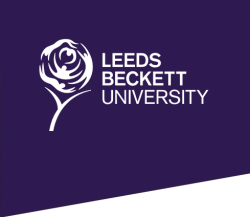 by Vicki Dobson and Sue Smith, Leeds Beckett University
by Vicki Dobson and Sue Smith, Leeds Beckett University
Leeds Beckett University has over 28,000 students and is based across two campuses, one in Leeds City Centre and one at Headingley, with a library at each site. Leeds Beckett University Library provides a range of services and support to disabled students. This article will focus on the support for students with print impairments who cannot access printed text. This is most often due to a visual impairment or a specific learning difficulty (SpLD) which affects their ability to read printed text, or a physical impairment which affects their ability to manipulate printed material. Leeds Beckett University has over 1,500 students with a print impairment.
The Library provides a large range of electronic resources including journals, newspapers and eBooks. These electronic formats have the potential to meet the needs of those with print impairments as accessible electronic resources can be adapted to improve access through functions such as the ability to change text size and colour, change background colour and compatibility with assistive software which can read text aloud. The Library seeks to purchase electronic resources, supplemented by appropriate print provision.
Unfortunately not all electronic resources are accessible to those with print impairments. Representatives from the Library are members of the eBook Accessibility Audit Project team who are working to drive improvements in the accessibility of eBooks. There is scope for further work to explore the accessibility of electronic journals.
The Library offers comprehensive support for students in using electronic resources. There is a range of assistive software available. Texthelp Read&Write and ClaroRead Plus provide study skills tools including text-to-speech and the ability to change screen colours. JAWS and Supernova are screen reading tools to support visually impaired students to use computers by reading aloud all screen content. Supernova and Zoomtext are screen magnifiers for those with visual impairments. SensusAccess is a web based tool which converts inaccessible documents, such as image PDF files, into accessible formats such as Word, tagged PDFs, audio, Braille and eBook formats. Unfortunately Digital Rights Management can prevent the use of SensusAccess. Workshops are available to support students in fully utilising assistive software to support their studies.
A range of Frequently Asked Questions (FAQs) are available, covering topics such as using the accessibility features of Adobe Reader and making eBooks more accessible through the use of accessibility tools and assistive software. The FAQs include information on accessibility functionality which is not available within different eBook platforms to save students having to discover this through trial and error.
The Library has a dedicated Learning Support Officer (Disability and Dyslexia) with responsibility for supporting disabled students. Students can book one-to-one appointments for help with a wide range of Library related topics, including using information resources, assistive software and and Library services and equipment. They can also get advice via telephone, email and online chat.
There is an Alternative Formats service for students with print impairments, which obtains printed books and inaccessible eBooks on their reading lists in an accessible format. These are usually provided as accessible eBooks or PDF files obtained from RNIB Bookshare or the publishers. The Learning Support Officer (Disability and Dyslexia) meets with students and shows them how to use assistive software to ensure the books meet their requirements.
The Library has a Disability Resource Area (DRA) at each campus. These are quiet and comfortable rooms for disabled students where they can study alongside their peers. The DRAs contain a range of resources to support students with print impairments, including PCs with assistive software installed as well as dual monitors and larger desks which can be helpful for students with dyslexia. There is also a CCTV magnifier and equipment such as daylight lamps to support students with visual impairments. The Library provides coloured paper free of charge which students can use for printing.
Students can also borrow assistive technology from the University’s Media Loans desk based in the Library. Available equipment includes C-Pen Reader scanning pens – portable scanning pens with embedded optical character recognition and text-to-speech technologies. These are particularly useful for students with print impairments such as dyslexia.
A new role was created in 2015 with responsibility for embedding accessibility throughout Library systems and services, and coordinating Library staff disability awareness training. The Library has an active staff training programme which aims to ensure that staff are skilled and confident at supporting students with a wide range of disabilities, including print impairments. Recent training has included sessions on visual impairment, specific learning difficulties (SpLDs), assistive software and eBook accessibility.
The Library constantly seeks opportunities to improve accessibility for students with print impairments by sharing best practice with other stakeholders and, of key importance, working with suppliers to improve accessibility at source whilst continuing to support students to access resources.
Contact:
Vicky Dobson
Senior Information Services Librarian
Sue Smith
Learning Support Officer (Disability and Dyslexia)